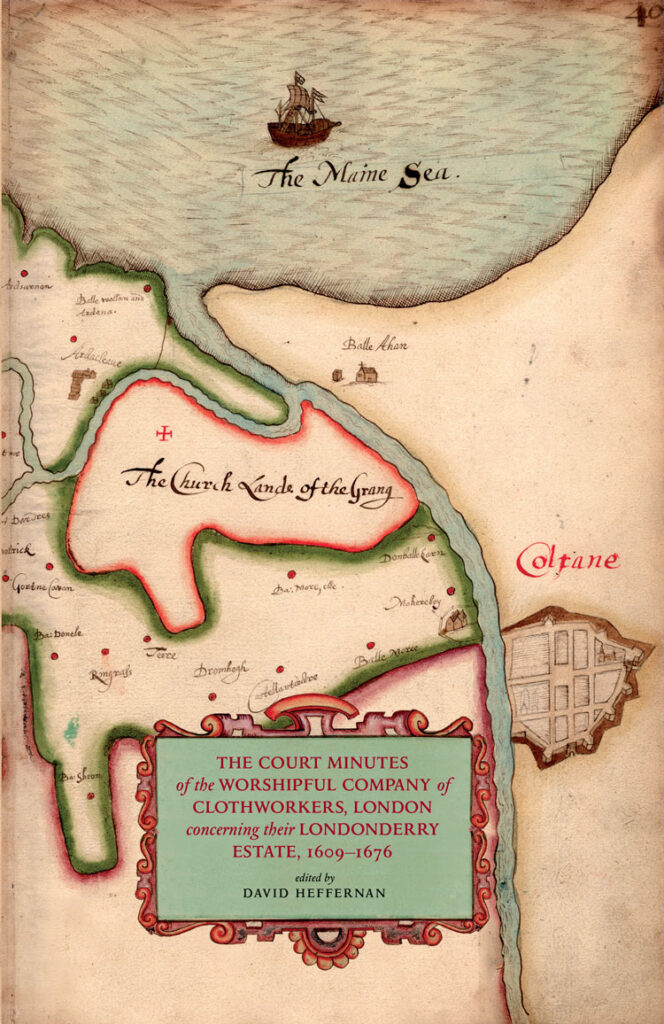
The Irish Manuscripts Commission is delighted to announce the publication of a new primary source for Ulster — The court minutes of the Worshipful Company of Clothworkers, London concerning their Londonderry estate, 1609–1676 edited by David Heffernan, an independent scholar and historian of the sixteenth and seventeenth century.
The wealthy and powerful City of London, as represented through its old-established Livery Companies, was a central, if reluctant, participant in the transformative Plantation of Ulster under the early Stuarts. As well as collectively developing two urban centres at Londonderry and Coleraine, the Companies were drawn into direct management of substantial landed estates. That the regime of Charles I expended much effort, and political capital, in a process which led to the confiscation of the City’s holdings contributed to the wider dissatisfaction building in London by the early 1640s. Yet only limited attention has been given to how the livery companies managed their estates in Londonderry from London, the methods they employed and the tensions which their involvement in the scheme produced. This edition presents an extensive volume of records showing how one of the twelve great livery companies of London, the Worshipful Company of Clothworkers, addressed themselves both to the shared plantation initiative and to their own estate, in the north-east of the county.
These minutes shed light on the scale of the Company’s reticence in terms of taking part in the plantation, the constant exchanges with the mayor and council of London in relation to financial assessments and the Clothworkers’ refusal to pay them — the ‘unsavoury, harsh and distasteful’ business as they called it. In addition much information is provided on the appointment of ‘farmers’ to manage the estates on behalf of the company, and carries the story forward into the years after the restoration of the Company’s title, into the 1660s and 1670s.
This small but perfectly formed source is bound in red linen cloth with textured endpapers. Like all IMC editions, it is printed on Munken Pure, an uncoated, FSC, PEFC and cradle-to-cradle certified paper . It is available to purchase here.
